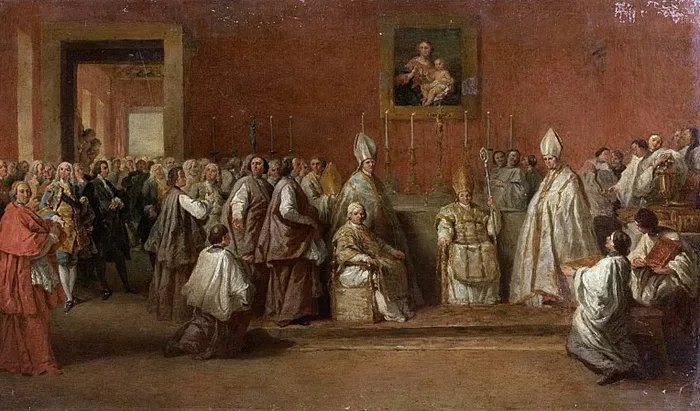Pope Leo XIV recently received an unusual but meaningful gift: a cake inspired by a 1,600-year-old philosophical dialogue by St. Augustine. Known as the “Cake of Happiness,” the dessert was sent in honor of the Feast of St. Rita, a patron of impossible causes and an Augustinian nun.
According to Spanish media outlet COPE, the Pope shared the cake — made with spelt flour, almonds, and honey — with his brothers and personal secretary in a quiet moment of reflection and prayer.
The cake was not just a sweet treat but a symbolic gesture. It draws inspiration from De Beata Vita (On the Happy Life), a philosophical dialogue written by Augustine in 386, shortly after his conversion to Christianity. Augustine was 32 years old at the time and gathered with his mother, Monica, and close companions for a day-long discussion on the nature of happiness.
The dialogue follows the style of ancient philosophers, particularly Plato. In it, Augustine explores a key question: What is true happiness, and who can claim to have it? He concludes that happiness is rooted in wisdom, and true wisdom comes from knowing and loving God. Material pleasures and intellectual success, he argues, are not enough to satisfy the soul.
The ingredients of the cake reflect this idea. Simple, nourishing, and sweet, they symbolize a joy grounded in moderation and spiritual clarity. The fact that the cake is served cold has been interpreted as a nod to temperantia — the classical virtue of self-control. Pope Leo XIV, who became Pontiff on May 8, has emphasized this virtue quietly in his ministry.
The setting of Augustine’s original conversation — a gathering of family and friends focused on truth and faith — also mirrors Pope Leo’s informal meal with his close circle. A Vatican spokesperson told COPE the cake represented “a desire that the Pope carry out his mission with joy, serenity, and the wisdom that comes from above.”
Revisiting De Beata Vita serves as more than a historical nod. It highlights how the Christian idea of happiness centers on inner transformation and a life directed toward God. As the world continues to search for meaning, Augustine’s ancient birthday dialogue still speaks — even through the humble form of a shared dessert.


